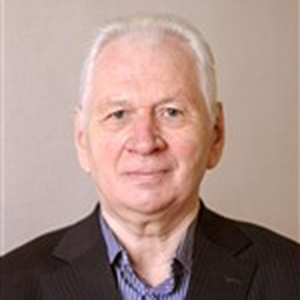Znakov Viktor V.

Dr. Sci. (Psychology)
Chief Scientist, Institute of Psychology of the Russian Academy of Sciences.
-
Inexpressible existential experience — psychological basis for understanding the unthinkableTheoretical and Experimental Psychology 2022. 1. p.5-23read more1094
-
The article is devoted to the psychological analysis of a new problem in the Russian psychology of understanding — understanding the unthinkable. Previously, it was substantiated that cognitive components of the phenomenon are reduced either to the incredible, impossible, what is diffi cult to imagine, or to the extraordinary, exceptional in terms of the degree of manifestation. The existential meaning of the “unthinkable” is associated with acceptance or rejection of the moral and social norms of human behavior in society, with inadmissibility of situations that are understood by most people as unthinkable. The novelty of the study is due to the original approach providing transition from categorical defi nitions of the unthinkable to the description of psychological mechanisms of its understanding. It is substantiated that one of them is an inexpressible traumatic existential experience. The study considers examples of such experience, analyzes semantics of the inexpressible, and identifi es its three main meanings: verbally “inexpressible” means unimaginable, indescribable, surpassing the means of verbal representation available to a person; “inexpressible” can mean bad, unwanted, or even hateful; “inexpressible” is what cannot be pronounced or said, qualifying a “sacred” object; one cannot speak of such an object, because it is outside the profane world and its language. It is shown that an inexpressible traumatic experience (experiencing the consequences of the Holocaust, manifestations of evil, a serious illness) indicates what cannot be expressed in words and contributes to generating an intrapersonal confl ict, in which the subject needs yet cannot express the unthinkable at the same time.Keywords: unthinkable; inexpressible; psychic trauma; existential experience
-
-
Psychology of the possible and possibilistic thinkingTheoretical and Experimental Psychology 2023. 2. p.5-22read more1002
-
Background. The article is devoted to the psychological analysis of a new problem for the psychology of a possible — possibilistic thinking. It is substantiated that if classical psychology was directed to the past, focused on identifying the connections of past experience with current behavior, then the creative potential of the psychology of the possible lies in the fact that a very significant part of it is directed towards an unknown indefinite future. In the perspective of modern methodology of scientific knowledge, research in the psychology of the possible is based on the possibilistic thinking, including counterfactual reasoning and intuitive insight.
The objective of the study: to analyze the theoretical and methodological foundations of possibilistic thinking based on counterfactual reasoning and intuitive insight.
Results. The article presents an analytical review of research in the field of counterfactual thinking and serendipity. Two main areas of research into the possible are identified — cognitive and sociocultural. The cognitive direction of research reflects the desire of scientists to correlate and compare the real situation with the potentially acceptable and therefore possible. The sociocultural approach deals with the possible in a reality in which facts are not uniquely “objective”, because they depend on the opinions, attitudes, values, and norms of people. The sociocultural understanding of the human world is based on the analysis not only of the actual world, but also of the relation of possible worlds to it.
Conclusions. Possibilistic thinking is not structural and meaningful, but functional. It is actualized when, without focusing on options for changing the cognitive or communicative situation, it is impossible to understand its current state, as well as the potential for possible development. Significant components of possibilistic thinking are counterfactual reasoning and intuitive insight. The use of such thinking gives the cognizing subject an opportunity to deeply and fully analyze not only the current cognizable situation, but also possible past and future options for changing it.
Keywords: possible; possibilistic; counterfactual reasoning; intuitive insight; serendipity
-
-
Understanding the Past and Counterfactual Possibilistic ThinkingTheoretical and Experimental Psychology 2024. 3. p.9-24read more257
-
Background. The article substantiates that today the research emphasis of many psychologists is shifting from understanding the present to analyzing the psychology of understanding the past and the future. Understanding the past is analyzed as a general humanitarian and psychological problem. Counterfactual thinking is considered as a psychological mechanism for understanding the past.
Objectives. To analyze the understanding of the past as a function of counterfactual possibilistic thinking.
Results. The study delivered an analysis of the role of counterfactual thinking in understanding the past, which did not actually happen, but could include alternative possible events. Counterfactual thinking was considered not as Laplace’s consistent description of the human world, but as a complex ambiguous mental formation. It is shown that counterfactual reasoning is a tool of cognition not only for psychologists, but also for historians, linguists, political scientists and researchers in other specialties. The presented analysis allowed to identify and describe five functions of counterfactual possibilistic thinking, manifested in behavior and activity: cognitive, meaningforming, motivational, moral, and affective-regulatory.
Conclusions. The psychological basis of retrospective counterfactual thinking is an appeal to the past, an analysis of the possible but not accomplished options for the development of the events and situations under study. A characteristic feature of the counterfactuals is that counterfactual events are not just something that did not happen, but something that could actually replace what happened.
Keywords: understanding the past; counterfactual reasoning; functions of counterfactual thinking; alternative events
-

